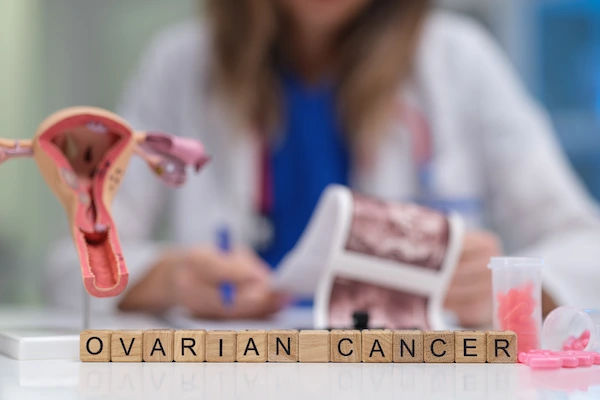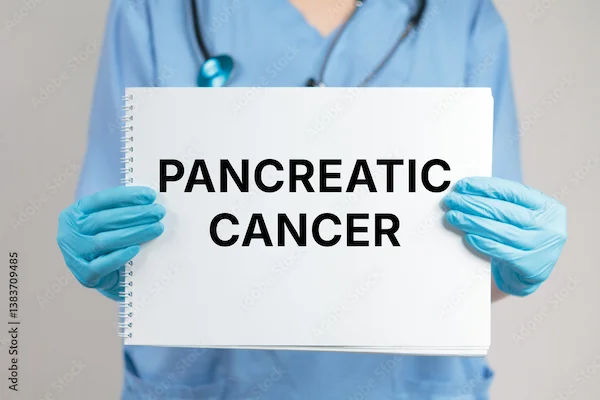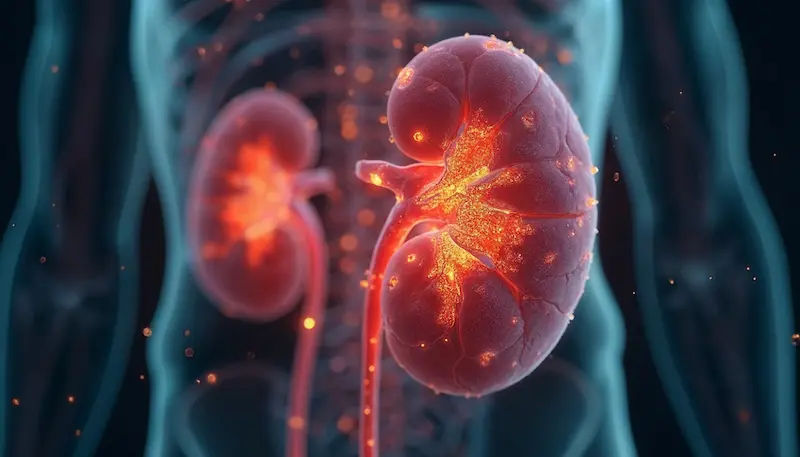Your Guide to Recovery After Chemotherapy: Reclaiming Your Strength
Discover practical strategies for recovery after chemotherapy, including diet, exercise, emotional well-being, and medical follow-up care to help you regain strength and rebuild your life.

Written by Dr. Dhankecha Mayank Dineshbhai
Reviewed by Dr. Shaik Abdul Kalam MD (Physician)
Last updated on 13th Jan, 2026

Introduction
Completing your final chemotherapy session is a monumental milestone, worthy of celebration. However, the journey doesn't end there. The path to recovery after chemotherapy is a unique process of healing, rebuilding, and rediscovering a new normal. Your body has been through an intense experience, and it needs time, patience, and the right strategies to regain its strength.
This guide is designed to walk you through every step of your recovery after chemotherapy, from managing immediate side effects to nurturing your long-term emotional well-being. We’ll cover practical advice on nutrition, safe exercises, and navigating the complex emotions that often follow treatment. Remember, recovery isn't a race; it's a personal journey of reclaiming your health and vitality, one day at a time.
What to Expect in the First Few Weeks Post-Chemo
The initial period following your last treatment can feel paradoxical. While you're relieved to be done, your body is still processing the powerful drugs. It's common for side effects to persist or even appear for a short time before they gradually begin to fade.
Managing Immediate Side Effects: Fatigue, Nausea, and Discomfort
Fatigue is arguably the most common and persistent side effect. This isn't ordinary tiredness; it's a deep, overwhelming exhaustion that rest doesn't always fix. Combat this by pacing yourself. Break tasks into small chunks and rest before you feel completely drained. For nausea, continue with any prescribed medications and try ginger tea, bland crackers, or small, frequent meals. If symptoms persist beyond two weeks, consult a doctor online with Apollo24|7 for further evaluation and management strategies. Mouth sores and discomfort can be alleviated with soft, cool foods and saline rinses.
The Importance of Rest and Pacing Yourself
Your primary job right now is to heal. This requires immense energy, even if you're lying still. Listen to your body's signals. If it says sleep, sleep. If it says take a short walk, do that. The "boom and bust" cycle, where you overexert yourself on a good day and crash for the next several, is common. Avoid it by planning gentle activities with ample rest periods in between. This consistent, mindful pacing is the foundation of how to regain energy after chemotherapy.
Consult Top Doctors for Personalised Advice
Nourishing Your Body: The Role of Diet in Healing
Food is medicine during recovery. Chemo can alter your taste buds, suppress your appetite, and cause digestive issues, making eating a chore. The goal is to focus on nutrient-dense foods that fuel repair.
Key Nutrients for Recovery: Protein, Vitamins, and Hydration
Protein is critical for rebuilding tissues and immune cells. Incorporate lean sources like chicken, fish, eggs, lentils, and Greek yoghurt. Vitamins and minerals from colourful fruits and vegetables support overall healing and combat inflammation. Most importantly, stay hydrated. Water flushes out toxins, alleviates fatigue, and helps with digestion. If plain water is unappealing, try infusing it with lemon, cucumber, or mint.
Easy-to-Digest Foods and Meal Ideas for Low Appetite
When your appetite is low, think small and often. Smoothies and protein shakes are excellent ways to pack calories and nutrients without needing to chew much. Soups, stews, oatmeal, and scrambled eggs are gentle on the stomach. The key to a successful diet to rebuild the immune system after chemo is flexibility; eat what sounds good when it sounds good, and don't pressure yourself to finish large portions.
Rebuilding Physical Strength Safely
Physical activity might be the last thing you feel like doing, but gentle movement is a proven way to reduce fatigue, improve mood, and rebuild muscle mass.
Starting with Gentle Movement: Walking and Stretching
You don't need a gym membership. Start with a 5–10 minute daily walk around your home or garden. Gradually increase the time as your energy allows. Gentle stretching or practices like Tai Chi can improve flexibility and reduce stiffness without straining your body. The objective is movement, not intensity.
Gradually Reintroducing Exercise: Listening to Your Body
As you grow stronger, you can explore more structured, safe exercises after chemotherapy. Always get clearance from your oncologist first. Activities like swimming, stationary cycling, or light weight training can be incorporated slowly. The most important rule is to listen to your body. Some muscle soreness is normal, but sharp pain or extreme fatigue is a signal to stop and rest.
Addressing Long-Term and Late Side Effects
Some effects linger or emerge months after treatment. Knowing about them helps you address them proactively.
Coping with "Chemo Brain" (Cognitive Changes)
Coping with chemo brain fog is a real challenge. You might experience memory lapses, trouble concentrating, or a feeling of mental "fogginess." Use tools to compensate: keep a detailed planner, set reminders on your phone, and don't be afraid to ask people to repeat information. Puzzles, reading, and learning new skills can help retrain your brain over time.
Managing Peripheral Neuropathy (Nerve Damage)
This often manifests as tingling, numbness, or pain in your hands and feet. Protect yourself from burns (test water with your elbow) and falls (wear sturdy shoes). Certain medications and physical therapy can help manage neuropathy after cancer treatment. Report these symptoms to your doctor, as they can advise on the best management plan.
Caring for Your Skin, Hair, and Nails
Your skin may be dry and sensitive, and your new hair growth fragile. Use gentle, fragrance-free moisturisers and soaps. Protect your scalp from the sun. Your nails may be ridged or brittle; keep them trimmed and moisturised. These changes are almost always temporary.
The Emotional and Mental Journey of Recovery
The end of treatment can bring a surprising wave of anxiety, fear, and isolation. The constant support of your medical team lessens, and you're left to process the experience.
Processing the Experience: It's Okay Not to Be Okay
Many expect to feel only joy, but anxiety about recurrence (often called "scanxiety") is normal. Allow yourself to feel whatever comes up without judgment. Emotional recovery after cancer is nonlinear. Journaling or creative arts can be a helpful outlet to process complex feelings.
Seeking Support: Therapy, Support Groups, and Loved Ones
You don't have to do this alone. Consider speaking with a therapist who specialises in oncology. Connecting with other survivors in support groups can be incredibly validating, as they truly understand your experience. Also, lean on your loved ones and communicate your needs clearly.
Your Medical Follow-Up Plan: Why It's Crucial
Recovery is monitored through a structured schedule of follow-up appointments. These are essential for tracking your health and catching any potential issues early.
Understanding Scan Results and Blood Tests
Follow-up often involves periodic scans and blood work. It's normal to feel anxious before these appointments. Write down your questions beforehand and have a loved one join you to help remember the information. Apollo24|7 offers convenient home collection for tests like vitamin D or HbA1c, which can be part of your ongoing health monitoring.
Communicating New Symptoms to Your Oncology Team
Never dismiss a new, persistent symptom as "just part of recovery." Your medical team needs to know about any significant changes, like a lingering cough, unexplained pain, or drastic weight loss. They are your partners in long-term health.
Returning to Work and Social Life
Reintegrating into your old routines can be challenging as you may have changed, and the world around you has continued.
Setting Boundaries and Managing Expectations
Ease back into work if possible, perhaps starting with a part-time schedule. Be open with your employer about your needs. Learn to say "no" to social engagements when you need to conserve energy. Setting boundaries is not selfish; it's necessary for your continued healing.
Dealing with the "What Now?" Feeling
After the intense focus on treatment, it's common to feel a loss of purpose. This is a time to explore new interests, set gentle goals, and redefine what a meaningful life looks like for you now. Be patient with yourself as you discover this new chapter.
Conclusion
The road to recovery after chemotherapy is one of the most personal journeys you will ever undertake. It's paved with small victories, occasional setbacks, and profound learning about your own resilience. This guide provides a map, but you are the navigator, setting the pace and direction based on your unique needs. Embrace the support around you, celebrate every bit of progress, and be incredibly kind to yourself. You have endured so much. Now, it's time to gradually rebuild, not just to who you were, but to a stronger, more aware version of yourself. Remember, if at any point you feel uncertain about your symptoms or recovery progress, your medical team is there to help. You've got this.
Consult Top Doctors for Personalised Advice
Consult Top Doctors for Personalised Advice

Dr.sanchayan Mandal
Medical Oncologist
17 Years • MBBS, DrNB( MEDICAL ONCOLOGY), DNB (RADIOTHERAPY),ECMO. PDCR. ASCO
Kolkata
Dr. Sanchayan Mandal Oncology Clinic, Kolkata

Dr. Sanchayan Mandal
Medical Oncologist
17 Years • MBBS, DNB Raditherapy, DrNB Medical Oncology
East Midnapore
VIVEKANANDA SEBA SADAN, East Midnapore

Dr Gowshikk Rajkumar
Oncologist
10 Years • MBBS, DMRT, DNB in Radiation oncology
Bengaluru
Apollo Clinic, JP nagar, Bengaluru

Dr. Gopal Kumar
Head, Neck and Thyroid Cancer Surgeon
15 Years • MBBS, MS , FARHNS ( Seoul, South Korea ), FGOLF ( MSKCC, New York )
Delhi
Apollo Hospitals Indraprastha, Delhi
(25+ Patients)

Dr. Ruquaya Ahmad Mir
Surgical Oncologist
20 Years • MBBS, DNB
Delhi
Apollo Hospitals Indraprastha, Delhi
(25+ Patients)
More articles from Cancer
Frequently Asked Questions
Q1. How long does fatigue last after chemotherapy?
It varies greatly. For most, significant fatigue improves within the first 3–6 months, but low-level fatigue can sometimes persist for a year or longer. Consistent pacing, gentle exercise, and proper nutrition are key to managing it.
Q2. What are the best foods to eat to regain strength after chemo?
Focus on high-protein foods (lean meats, eggs, beans, Greek yoghurt), complex carbohydrates (oats, sweet potatoes), and a variety of colourful fruits and vegetables for antioxidants. Hydration with water, broths, and herbal teas is also crucial.
Q3. Is it normal to feel depressed after finishing cancer treatment?
Yes, it is surprisingly common. The end of active treatment can bring a void and a flood of unresolved emotions. It's important to recognise these feelings and seek support from a therapist, support group, or your oncologist.
Q4. What is 'chemo brain' and will it go away?
'Chemo brain' refers to cognitive changes like memory issues and foggy thinking. For the vast majority of people, it improves significantly within 6–12 months after treatment. Brain-training exercises and healthy habits can aid recovery.
Q5. When should I call my doctor about a new symptom during recovery?
You should contact your oncology team for any new, persistent, or worsening symptom, especially pain that doesn't go away, a fever over 100.5°F (38°C), shortness of breath, or unexplained weight loss.



